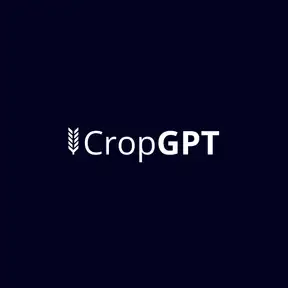CropGPT - Canola - Week 18
Welcome to the weekly summary of the global canola market for 05/04/2025. For more information on any aspect of this report, please visit the CropGPT website for far more detailed reporting and analysis. Canada's canola sector has seen a dramatic 70% increase in exports, reaching 6,870,000 tonnes by week 34 of the twenty twenty four-twenty five marketing year. This sharp rise occurs amidst strained trade relations, notably with China imposing a 100% tariff on Canadian canola oil and meal, and conducting anti dumping investigations into seed imports. The situation is further complicated by proposed United States tariffs, though canola was exempted.
Speaker 1:On the domestic front, initiatives such as Imperial Oil's seven twenty million dollars renewable diesel plant in Alberta aimed to boost internal demand, consuming an estimated 1,000,000 tons of canola oil annually. The facility's operations are anticipated to counteract the reduced export opportunities. The United States Department of Agriculture's Foreign Agricultural Service projects Canadian canola production to climb to 18,460,000 tons in twenty twenty five-twenty six, with increased crushing capacity boosting domestic consumption. Despite the strong export performance, market sentiment among farmers remains cautious due to global trade uncertainties and perceived inadequacies in governmental support amidst rising trade related costs. In China, the import strategy for oilseeds has significantly shifted following tariffs on Canadian products, promoting diversification of supply sources.
Speaker 1:Notably, China has imported 52,000 tons of Indian rapeseed meal within just three weeks, capitalizing on India's price advantages and subdued domestic demand. This strategic shift underscores China's adaptability in sourcing from cost effective markets. Meanwhile, Russia's rapeseed oil exports to China increased by 27.8% in the first quarter of twenty twenty five, despite a decline in seed exports due to a new Russian export duty. These developments highlight China's nimble response to trade dynamics and domestic needs. Russia's rapeseed market exhibits mixed growth trends.
Speaker 1:Regional variations are pronounced, with the Oriel region expanding its sown area following a record harvest, while the Bryansk region struggles with drought related setbacks. Stringent export policies, including a 30% duty on rapeseed seeds, have impacted trade volumes, yet favorable conditions have bolstered oil exports. Russia's strategic expansion within the rapeseed sector is evident in increased sewn areas and efforts to diversify export markets beyond China, supported by governmental measures and tariff quotas. Globally, the canola market proves resilient amid changing trade policies and environmental factors. Canada's strong export figures stand in contrast to Russia's strategic pivot towards enhancing rapeseed oil production and exports.
Speaker 1:Europe's outlook is mixed, with potential growth tempered by adverse weather and pest issues. Meanwhile, emerging markets like India benefit from shifting trade flows, introducing new dynamics to the global supply chain. Collectively, the international canola and rapeseed markets are characterized by swift adaptations to policy alterations, evolving trade relationships, and strategic supply chain realignments aimed at exploiting growth opportunities across various regions. Remember, our CropGPT site contains far more details and reports about the canola market, including crop health reports, twenty years of weather data, and even pricing data and earning call analysis. This podcast is just a few selected highlights for the week.

